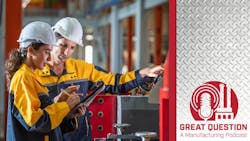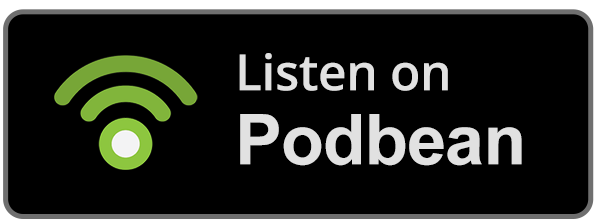Podcast: Revolutionizing manufacturing recruitment — An innovative solution for filling open positions
Chad Schron is the senior director for Tooling U-SME and the co-founder of the original Tooling U. While working at his grandfather’s machine shop, Chad had the idea for an online manufacturing training school to help solve the skilled labor shortage. In his current position, Chad leads the Sales, Learning Services, Client Services, Technology, Content, and Operations teams for Tooling U– SME. Chad recently spoke with Robert Brooks, editor in chief of American Machinist, about a new program designed to help manufacturers find, train, and retain the talent necessary to fill the industrial labor pipeline.
Below is an excerpt from the podcast:
AM: The program that you're introducing is called Ready to Hire. Briefly tell us how it will work.
CS: So, if you think about traditional manufacturing hiring, an HR manager posts a job description up on one of the bulletin boards. And lots of resumes come in, and then they have to sift through all those resumes. Don't really know who has the right skills to meet the jobs. You reach out to some of the candidates. You get no response back from them. Ultimately, it is a very expensive and slow process, and even once you eventually hire a candidate, they have oftentimes very high turnover. Some candidates don't make it past the first week or even the first day on the job. So, it's ultimately a very expensive and slow process.
Ready to Hire is a new program designed to hire entry-level manufacturing talent. It is a model that's proved out very well in the healthcare industry. The healthcare industry is having some of the same labor challenges that manufacturing is. So, we're bringing in this new model into manufacturing, where employers will be able to commit to a minimum number of hires. We will then go out, find those candidates who meet those qualifications, train them up to a standard body of knowledge, and then help you then to retain that talent pool. In the healthcare industry, they saw an over 85% increase in higher rate from when you interview a candidate to hiring them, 50% reduction in onboarding time, and a 94% reduction in turnover.
AM: In the announcement that you sent to me, Tooling U explains that “by moving the training up front, Ready to Hire delivers a risk-free talent pipeline that can flex up or down as needed by each organization.” So tell me, what is meant by train to hire?
CS: So when manufacturers have an open job role that they need to fill, they come to the Ready for Hire program, and they define a standard set of knowledge and skills that that individual has to have to be successful. And those could be a combination of manufacturing skills, so blueprint reading, GD&T, metrology, machining, whatever those hard skills are, as well as those important soft skills, so things like communication, problem solving, team building, emotional intelligence, conflict resolution. A combination of both those hard skills as well as those soft skills.
And through our program, we reach out to over 4 million potential candidates that we have access to through our education partnerships. And then we qualify candidates that might be interested in those potential job roles, interview those candidates to vet qualified candidates, train them up to that new standard that was defined at the beginning, and the company then could interview those candidates just like they would their traditional candidates, but now these candidates have been pre vetted, pre trained and certified, if they want, up to the company's standard. Then, once you decide to hire that employee, there's retention services that go along with it to help ensure that the employee stays with the organization and is successful.
AM: That's interesting. I know that that retention detail is an important one to a lot of the manufacturers, machine shop operators, and owners that I've talked to. So, I think that will catch the eye of a lot of people. Tell me, what skills will be available through Ready to Hire?
CS: This definitely is entry-level talent, so everything from basic manufacturing skills, think quality, safety, lean, blueprint, inspection, and then going into some of the most popular career pathways, so, entry-level machining, assembly, mechatronics, welding, industrial maintenance. So certainly those entry-level manufacturing skills and then entry-level training for some of the most popular career pathways. It uses a lot of our Tooling U-SME content and solutions, which includes our online learning classes, our virtual reality training products, our certifications, and our apprenticeship programs.
About the Podcast
Great Question: A Manufacturing Podcast offers news and information for the people who make, store and move things and those who manage and maintain the facilities where that work gets done. Manufacturers from chemical producers to automakers to machine shops can listen for critical insights into the technologies, economic conditions and best practices that can influence how to best run facilities to reach operational excellence.
Listen to another episode and subscribe on your favorite podcast app
About the Author
Robert Brooks
Robert Brooks has been a business-to-business reporter, writer, editor, and columnist for more than 20 years, specializing in the primary metal and basic manufacturing industries. His work has covered a wide range of topics, including process technology, resource development, material selection, product design, workforce development, and industrial market strategies, among others. Currently, he specializes in subjects related to metal component and product design, development, and manufacturing — including castings, forgings, machined parts, and fabrications.
Brooks is a graduate of Kenyon College (B.A. English, Political Science) and Emory University (M.A. English.)




